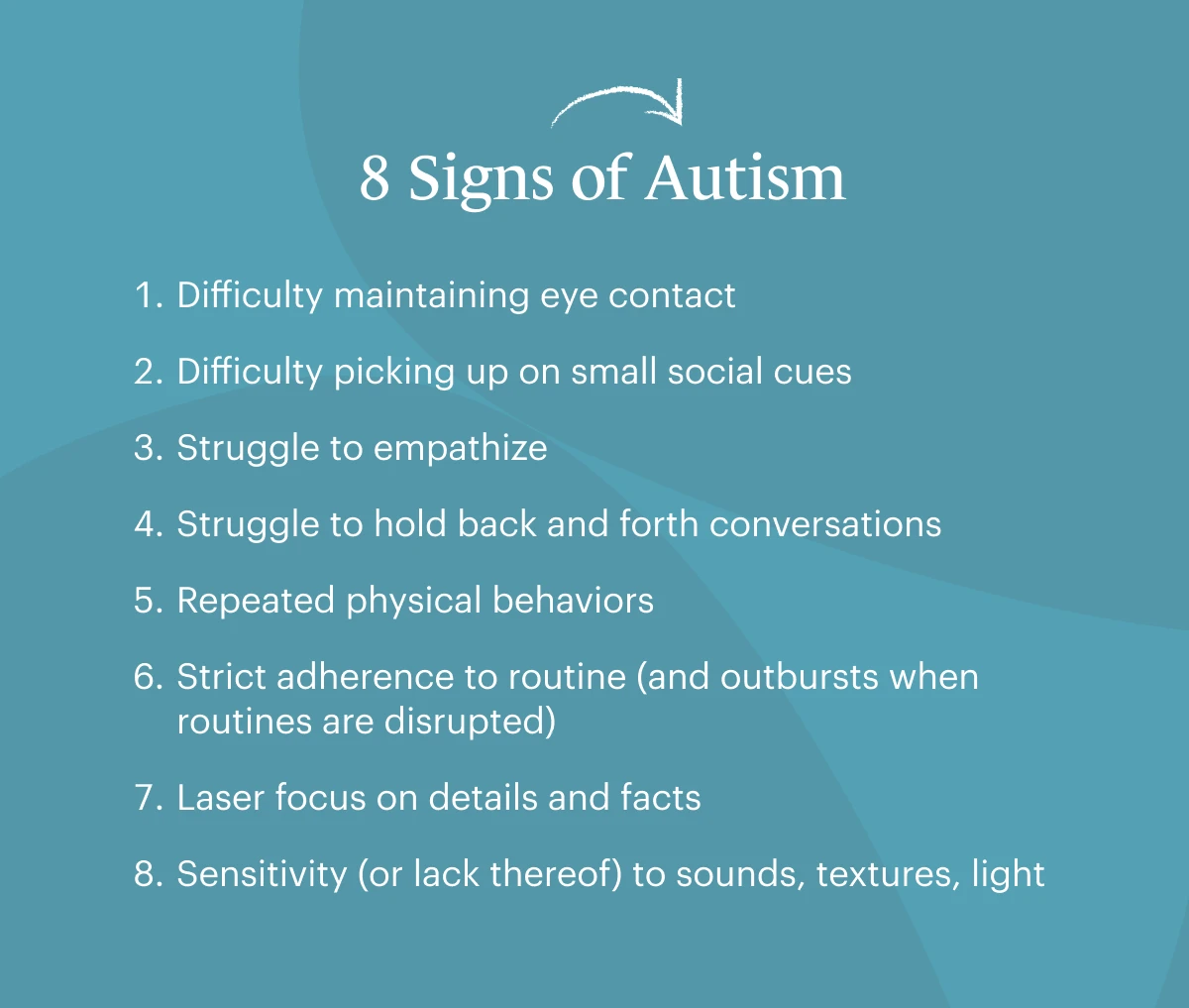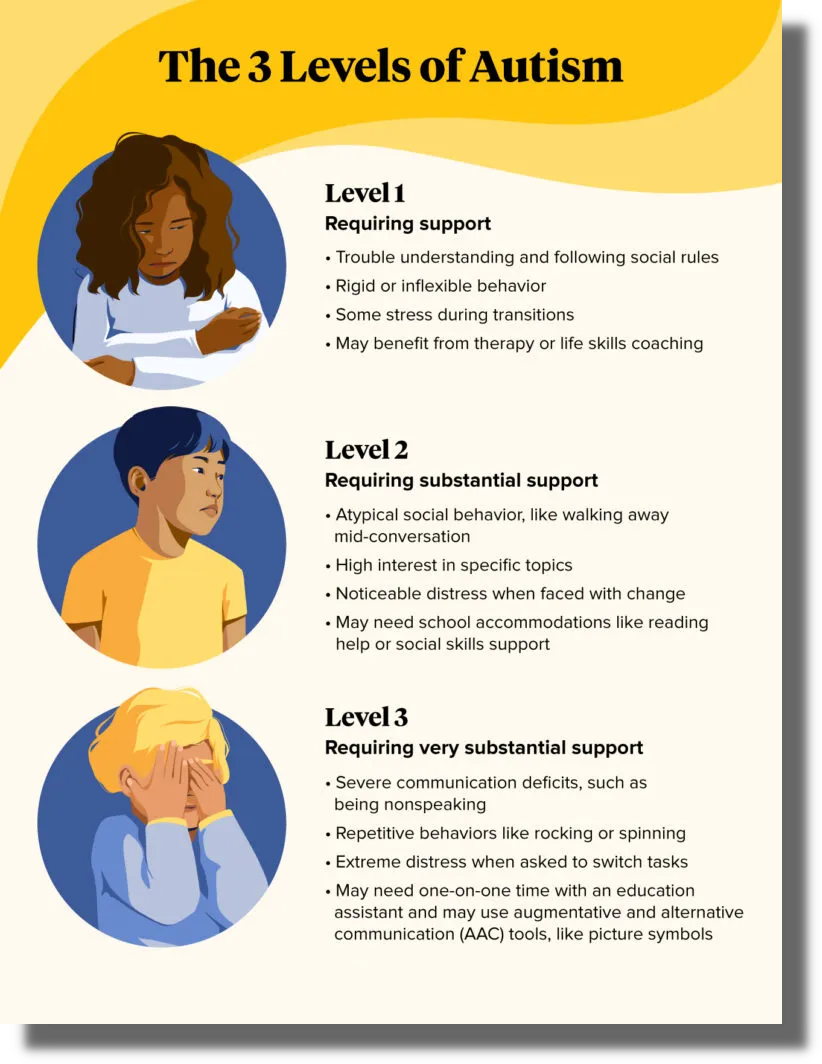Navigating emotional regulation through Autism Therapist methods
Navigating emotional regulation through Autism Therapist methods
Blog Article
Recognizing the Influence of Behavioral Autism on Daily Life and Social Interactions
You might not realize how deeply behavior autism impacts daily life and social interactions. People on the spectrum typically browse a world loaded with communication hurdles and sensory overload. These challenges can lead to stress and seclusion, impacting their relationships and overall health.
Specifying Behavioral Autism and Its Features
Behavioral autism, commonly described as autism spectrum condition (ASD), incorporates an array of conditions identified by difficulties in social communication, communication, and repetitive habits. You could notice that people with ASD frequently struggle to translate social signs, which can cause misconceptions in conversations. They may locate it difficult to establish eye contact or participate in small talk, making social situations really feel overwhelming.
Interaction troubles can manifest in different ways, from postponed speech growth to a preference for making use of fewer words. By acknowledging these qualities, you can promote a setting that advertises acceptance and urges reliable interaction, aiding people with autism prosper in their everyday interactions.
The Range of Autism: Understanding Variability in Habits
Autism range condition (ASD) isn't a one-size-fits-all medical diagnosis; it differs widely among individuals. You might come across individuals that are highly spoken and involve quickly in discussions, while others could favor singular tasks or communicate non-verbally.
In addition, the way people with ASD reply to sensory input can differ greatly; some may be bewildered by loud sounds or bright lights, whereas others flourish in stimulating environments. The spectrum also includes distinctions in social interactions; some people may have a hard time to translate social signs, while others navigate social setups with loved one simplicity. Understanding this irregularity is essential, as it assists you value everyone's distinct experience and dressmaker assistance to their certain requirements, fostering a more comprehensive atmosphere for everybody.
Communication Difficulties Dealt With by People With Autism
When you communicate with individuals on the autism spectrum, you might see their one-of-a-kind communication challenges. They often encounter problems with both verbal and nonverbal hints, which can affect their social interactions. Understanding these obstacles is vital for promoting better links and assistance.

Verbal Communication Troubles
Many people on the autism spectrum experience spoken interaction difficulties that can significantly impact their day-to-day interactions. Your quantity, tone, or speed could not straighten with social assumptions, triggering others to misinterpret your purposes. Acknowledging these obstacles can help you and your support network develop methods to enhance communication and foster much better connections with others in your daily life.
Nonverbal Interaction Obstacles
Verbal interaction isn't the only challenge people on the autism range face; nonverbal communication barriers can be simply as significant. You might discover it difficult to interpret body movement, faces, and eye contact, which are important for reliable communication. These difficulties can bring about misconceptions or misinterpretations of social signs, making communications really feel frustrating or complicated. You may struggle to reveal your very own emotions via nonverbal ways, leaving others uncertain of your sensations or intents. This detach can produce sensations of seclusion and irritation. Acknowledging these obstacles is vital for promoting understanding and compassion in your interactions. By dealing with nonverbal interaction, you can locate strategies to improve your social experiences and boost your overall quality of life.
Social Interaction Impacts
Social communications can typically really feel overwhelming due to the special interaction obstacles faced by individuals with autism. Identifying these challenges can aid you find methods to enhance interaction, such as exercising social abilities in secure setups or using aesthetic aids. Understanding your requirements enables you to browse social interactions with greater confidence and ease.
Social Interaction and Connection Building in Autism
While Read More Here building connections can be challenging for people with autism, recognizing their unique viewpoints and interaction designs can foster significant links. You could observe that lots of people on the range prefer straight interaction and might deal with social signs or tiny talk. By being simple in your interactions, you can help develop an atmosphere where they really feel comfy.
Engaging in shared interests can likewise serve as a bridge to deeper connections. Whether it's a leisure activity, a favored program, or a mutual interest, these common threads can open doors to relationship.
Daily Life Routine: Navigating Approaches and challenges
Navigating daily life regimens can be particularly challenging for people with autism, particularly when unexpected adjustments happen. To browse these obstacles, take into consideration carrying out aesthetic timetables or checklists.
Developing a regimen that includes sensory breaks can additionally be advantageous. This assists create an understanding environment.
Last but not least, method mindfulness strategies to take care of stress and anxiety. Simple breathing exercises or basing methods can make a considerable distinction. By incorporating these techniques, you can boost your daily routine and reduce disruptions, making life feel extra workable.
Staminas and Abilities of Individuals on the Autism Range
Understanding day-to-day live regimens is simply one facet of the autism experience. Many people on the autism spectrum have impressive strengths and capacities that set them apart. You could locate that your focus to information is phenomenal, enabling you to master tasks that require accuracy and focus. Your capacity to assume outside the box can lead to cutting-edge services in numerous scenarios.
Furthermore, your memory skills frequently shine, especially in locations of passion. Aba Therapist Near Me. This flair for maintaining information can make you an important resource in areas like technology, art, or science. You may also display strong aesthetic thinking, allowing you to envision intricate concepts and solve issues artistically
In addition, your unique point of view on the globe can foster compassion and understanding in others, enhancing social communications. Accepting these staminas not just improves your confidence yet likewise aids others value the diverse abilities you give the table.
Creating Inclusive Atmospheres for Individuals With Autism
Producing inclusive settings for individuals with autism begins with designing sensory-friendly areas that satisfy their distinct demands. You can also cultivate chances for social communication, aiding to build connections and relationships. By making these changes, you'll add to a more welcoming ambience for every person.
Designing Sensory-Friendly Spaces
While developing sensory-friendly rooms, it's vital to reflect on the unique needs of people with autism. Include quiet areas where people can reenergize and pull back when bewildered. Include visual timetables or clear signage to help people navigate the try this site area confidently.
Promoting Social Communication Opportunities
Creating sensory-friendly spaces not just addresses private convenience but additionally establishes the phase for meaningful social communications amongst people with autism. Urge peer mentoring, pairing people with autism with encouraging peers who can guide them via social circumstances. By carrying out these techniques, you can improve social chances, aiding individuals with autism build friendships and strengthen their social abilities in a safe, inviting setting.

Frequently Asked Questions
How Can Friends Support Somebody With Behavioral Autism?
You can sustain a buddy with behavioral autism by holding your horses, listening actively, and appreciating their borders. Take part in tasks they delight in, interact honestly, and produce a comfy environment where they feel valued and comprehended.
What Resources Are Readily Available for Parents of Children With Autism?
You can check out different resources for parents of youngsters with autism, consisting of support groups, instructional web sites, and regional community services. Attaching with other moms and dads can additionally provide important understandings and shared experiences to assist navigate difficulties.
Can Behavioral Autism Modification In Time?

Yes, behavior autism can change in time. You could discover shifts in interaction, social abilities, and actions as your kid expands. Early treatment and support typically play essential duties in these developing adjustments.
How Do Sensory Level Of Sensitivities Affect Day-to-day Live?
Sensory sensitivities can make day-to-day experiences frustrating. You may fight with loud noises or brilliant lights, causing anxiety or evasion. Discovering atmospheres that suit your needs can significantly improve your comfort and overall life.
What Prevail Misconceptions Concerning Behavioral Autism?
You might believe behavior autism just impacts communication abilities, however it's more complicated. Numerous think individuals do not have compassion or check it out intelligence, which isn't real. Understanding these misconceptions aids foster acceptance and assistance for those on the spectrum.
Behavior autism, often referred to as autism range condition (ASD), incorporates an array of problems characterized by obstacles in social interaction, interaction, and repetitive actions.Social interactions can frequently feel frustrating due to the one-of-a-kind communication difficulties encountered by people with autism.Designing sensory-friendly spaces not only addresses specific comfort however also sets the phase for significant social interactions amongst individuals with autism. Urge peer mentoring, coupling individuals with autism with supportive peers that can guide them via social scenarios. By carrying out these approaches, you can improve social possibilities, assisting individuals with autism construct friendships and reinforce their social abilities in a secure, welcoming setting.
Report this page